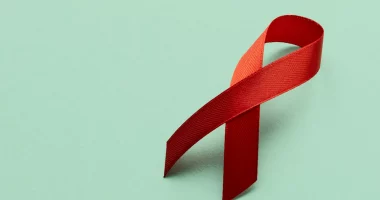Antisocial personality disorder (ASPD) is when someone consistently ignores other people’s rights and doesn’t follow the rules of society. Some people might call this sociopathy.
It is a mental health condition where a person consistently acts in ways that harm others or break the rules of society. It’s not very common, affecting about 1 to 4 out of every 100 people.
People with ASPD often lie, manipulate, and take advantage of others without feeling guilty. They might do things like lying to get what they want, breaking the law, not caring about other people’s safety or feelings, and being reckless.
What’s really tricky about ASPD is that those who have it don’t feel sorry for what they do, even if it’s harmful or against the law. They might not care about hurting others or might make excuses for their actions.
ASPD is one of the personality disorders listed in a big book called the Diagnostic and Statistical Manual of Mental Disorders. This book sorts personality disorders into groups, and ASPD is in a group called cluster B, which includes disorders where people struggle with emotions and impulse control.
Signs and symptoms
Sometimes people lie or manipulate others, but for those with ASPD, these behaviors are a big part of who they are and they don’t change.
According to the DSM-5-TR, which is like a big book that assists doctors analyse mental health issues, here are some behaviors that might show someone has ASPD:
- Breaking rules and laws often.
- Doing things that could get them arrested.
- Lying, stealing, or tricking others a lot, usually for their own gain or because they enjoy it.
- Making decisions without thinking about the consequences.
- Being easily annoyed or aggressive.
- Getting into fights.
- Hurting others, even in their own family or relationship.
- Not caring about their own safety or others’.
- Always being irresponsible.
- Having trouble sticking to promises or managing money.
- Not feeling bad about hurting others or breaking the law.
- Breaking or damaging things on purpose.
- Bullying or bothering others.
- Doing illegal jobs.
- Blaming others for their own actions.
- Acting like they’re better than everyone else.
- Coming off as confident or charming, even though it might not be real.
These behaviors can make it hard for people with ASPD to keep friends or a job.
Individuals with ASPD often have lots of different partners and might not stay in a serious relationship. They might not be good parents either.
A study from 2018 found that kids aged 12-14 who are aggressive might be more likely to have ASPD when they grow up.
Research also shows that individuals with personality disorders, like ASPD, might be more likely to try to hurt themselves than others who don’t have these issues.
Diagnosis
ASPD is diagnosed through a psychological evaluation where healthcare professionals assess if the person consistently shows behaviors indicating a disregard for the rights of others. While there are no specific tests for diagnosing ASPD, doctors might request genetic or neuroimaging tests to explore potential causes or patterns linked to the disorder.
Criteria
To diagnose ASPD, healthcare providers refer to the criteria outlined in the DSM-5-TR. A person must exhibit at least three of the following behaviors: failing to follow societal norms, being deceitful, acting impulsively, showing aggressiveness or irritability, disregarding safety, displaying consistent irresponsibility, or lacking remorse.
Minimum age for ASPD diagnosis
ASPD cannot be diagnosed in childhood as per the DSM-5-TR. The individual must be at least 18 years old to receive a diagnosis. However, signs of the disorder should have emerged before the age of 18, with evidence of conduct disorder onset before 15. Additionally, the antisocial behavior should not be solely attributed to bipolar disorder or schizophrenia.
Crime and diagnosis
Merely committing a crime doesn’t automatically mean someone has ASPD. The person must exhibit inflexible and persistent personality traits causing distress or impairment in daily functioning. If ASPD-like traits appear in individuals with substance use disorders, diagnosis requires evidence of these traits in childhood, although both conditions can co-occur.
Related conditions
People with ASPD might also have other problems, like:
- Feeling really anxious or worried all the time
- Feeling really sad or hopeless
- Using drugs or drinking a lot
- Always thinking they’re sick even when they’re not
- Being addicted to gambling
- Having a hard time controlling their actions
They might also have traits that look like other personality disorders, especially ones in the same group:
- Borderline personality disorder: where emotions and relationships are all over the place
- Narcissistic personality disorder: where someone thinks they’re better than everyone else
- Histrionic personality disorder: where someone craves attention all the time
The DSM-5-TR says that kids who are diagnosed with conduct disorder before they’re 10 and also have ADHD are more likely to end up with ASPD later on.
Causes and risk factors
We’re not totally sure what causes ASPD, but it could be a mix of things like genes you’re born with, stuff that happens to you, and the way you’re brought up.
The DSM-5-TR says that ASPD seems to run in families, so if someone in your family has it, you might be more likely to get it too. Scientists think genes might be responsible for about 38 to 69 percent of the chances of having ASPD.
Bad stuff that happens when you’re young, like not being looked after properly or being hurt, can also make ASPD more likely when you grow up. Also, if you had conduct disorder or ADHD when you were a kid, that might raise the chances of ASPD later on.
ASPD is more common in males than females. Males are about three to five times more likely to get diagnosed with it than females.
Treatments
Helping someone with ASPD isn’t easy. They usually don’t look for help themselves, often only starting therapy when a court tells them to.
Right now, there isn’t a lot of proof that therapy or medicine really works for ASPD. But medicines might help with other problems like being aggressive or acting without thinking.
It’s tough to keep treating ASPD because many people stop their treatment early. Also, using drugs or drinking alcohol can make things worse by making people more aggressive or impulsive. So, getting help for substance use can be really important.
Treatment mostly focuses on small goals, like trying to avoid getting into trouble, instead of trying to change who the person is.
Therapy can be useful for helping people learn to deal with their thoughts, actions, and how they relate to others. Sometimes, group therapy with others who have similar issues can be helpful too, whether it’s in a community program or somewhere else.
Taking care of someone with ASPD can be tough for their friends, family, and doctors. The National Alliance on Mental Illness has tips for families and caregivers on how to support someone with a mental health problem while also taking care of themselves.
Outlook
ASPD sticks around for life. Doctors can’t say for sure someone has it until they’re 18, but signs might show up a bit earlier.
The worst symptoms and bad stuff people do because of ASPD usually happen when they’re teenagers. But as they get older, into their mid-30s, things might start getting a bit better.
Studies show that people who start acting antisocial when they’re older tend to have less severe problems. And those with ASPD who haven’t been in jail much or only for short times have a better chance of getting better.
Summary
Antisocial personality disorder (ASPD) is a severe mental condition where someone consistently acts in ways that don’t care about other people’s rights or feelings.
We’re not exactly sure what causes ASPD, but it’s probably a mix of things like genes and stuff that happens to you.
Treating ASPD is hard because most people with it don’t want help, and there isn’t a set way to treat it yet. But there are things that can help handle the symptoms and other problems like being aggressive.
Talking with a kind therapist and having good friends or family who support you can make a big difference in changing behavior and feeling better, alongside other treatments.








